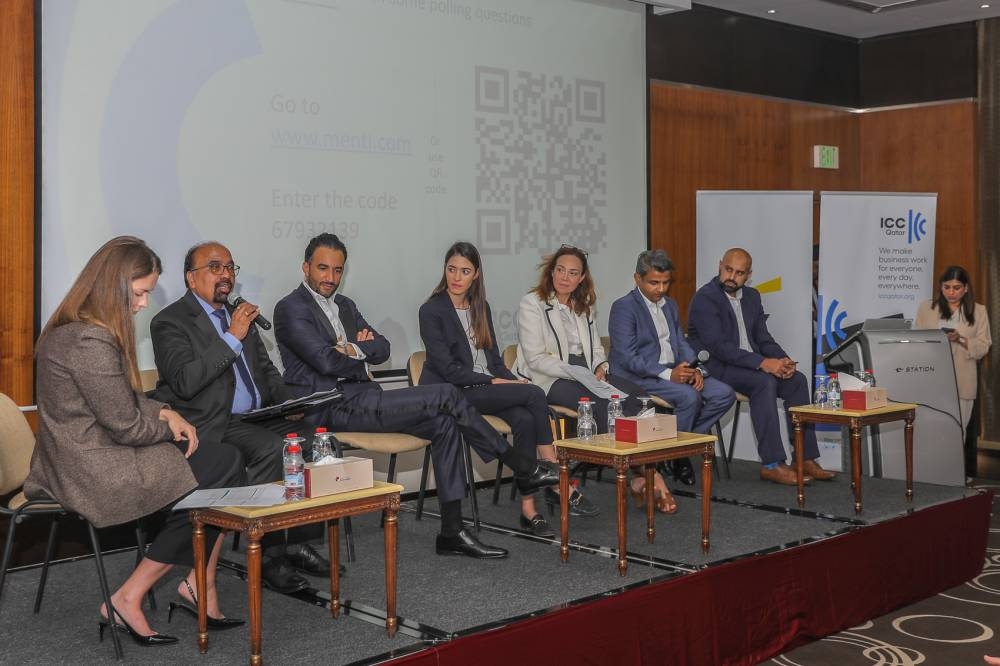The International Chamber of Commerce Qatar (ICC Qatar), in collaboration with EY, have organised the ‘One Size Does Not fit All: Tailoring the Integrity & Compliance Solution’ event at Qatar Chamber’s Doha headquarters.
“In today’s changing world, reputation is the backbone of companies and their ability to do business. Reputation built over a decade could easily be ruined through actions that are not in accordance with accepted standards and regulations. Nevertheless, having a robust compliance programme can help businesses mitigate potential wrongdoing, protect reputation and reduce or even avoid regulators’ fines and penalties,” according to a statement.
The event’s main goal was to provide the audience with insights and strategies related to building a fit-for-purpose compliance framework, best practices, recent compliance regulatory and technology trends, and effective instruments of compliance monitoring. It gathered many participants from different sectors in Doha, including insurance companies, banks, consulting companies, universities, law firms, exchange companies, and logistics companies.
The event also convened numerous speakers from various sectors in Doha, such as Dhritimaan Shukla, partner – Forensic & Integrity at EY; Andreas Pyrcek, partner – Forensic & Integrity at EY; Kseniia Neboga, director – Forensic & Integrity at EY; Alexandre Akhavi, Legal & Compliance director at Maha Capital Partners; Donia Droubi, head of Legal and Compliance, Coastal Arabia Cluster at Nestlé Middle East; Camille Roberts, Compliance manager & MLRO at Credit Agricole CIB QFC Branch; Sundaresan Rajeswar, Group Internal auditor at Teyseer Group; and Mohamed Solwa, director Internal Audit at Sidra Medicine.
In a statement, the ICC Qatar said: “As part of our mission, ICC Qatar was keenly interested in hosting this seminar aimed at instilling the principles of compliance and encouraging businesses to adopt best practices related to integrity, transparency, and reputation maintenance.”
During the seminar, Shukla said: “Integrity is the foundation of trust, which in turn builds better organisations. In addition, compliance should work along with business and constantly transform itself in order to cater to the needs of the evolving business and regulatory environment.”
For his part, Pyrcek emphasised: “The future of compliance is human-centric, where technology serves to enhance the human judgement and ethical considerations that are the true drivers of compliance, not to replace them.
“When technology and management align harmoniously in compliance initiatives, they pave the way not only for regulatory adherence but also for surpassing expectations through innovative and efficient practices.”
He added: “As technology progresses, our compliance strategies must evolve in tandem. Embracing digital transformation is imperative, not just a choice, to maintain a competitive edge within intricate regulatory frameworks and fulfil the expectations of compliance stakeholders.
“Compliance technology adoption without effective change management is like installing a new engine in an outdated vehicle; it holds immense potential but requires proper support to push it forward.”
Neboga said, “A compliance officer serves as a strategic adviser, entrusted to steer the organisation towards decisions that align with its mission, vision, and values, while adhering to the significant compliance obligations that govern its operations. Moreover, identification of compliance obligations and risks is centric to constructing a robust compliance framework. This framework is not a singular endeavour but rather an ongoing journey, reliant on continual top management support to foster a culture of ethics and compliance throughout the organisation.”

The panel of experts during the ICC Qatar, EY event.
